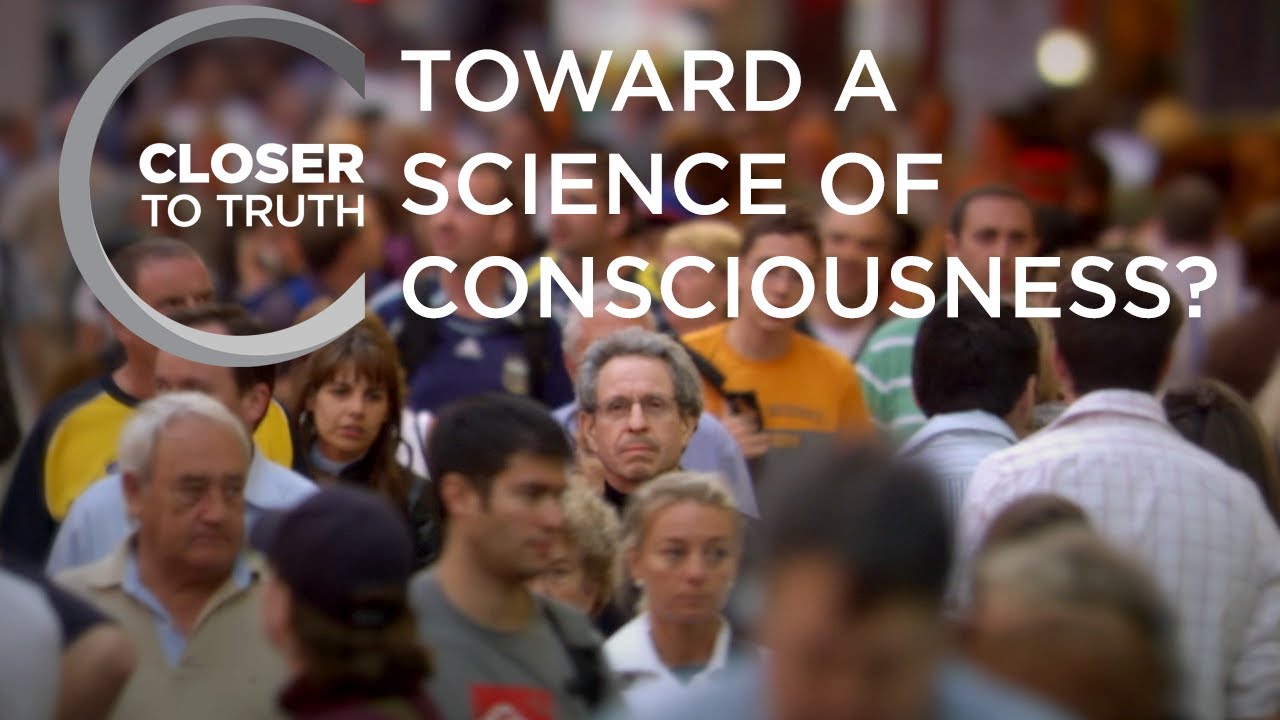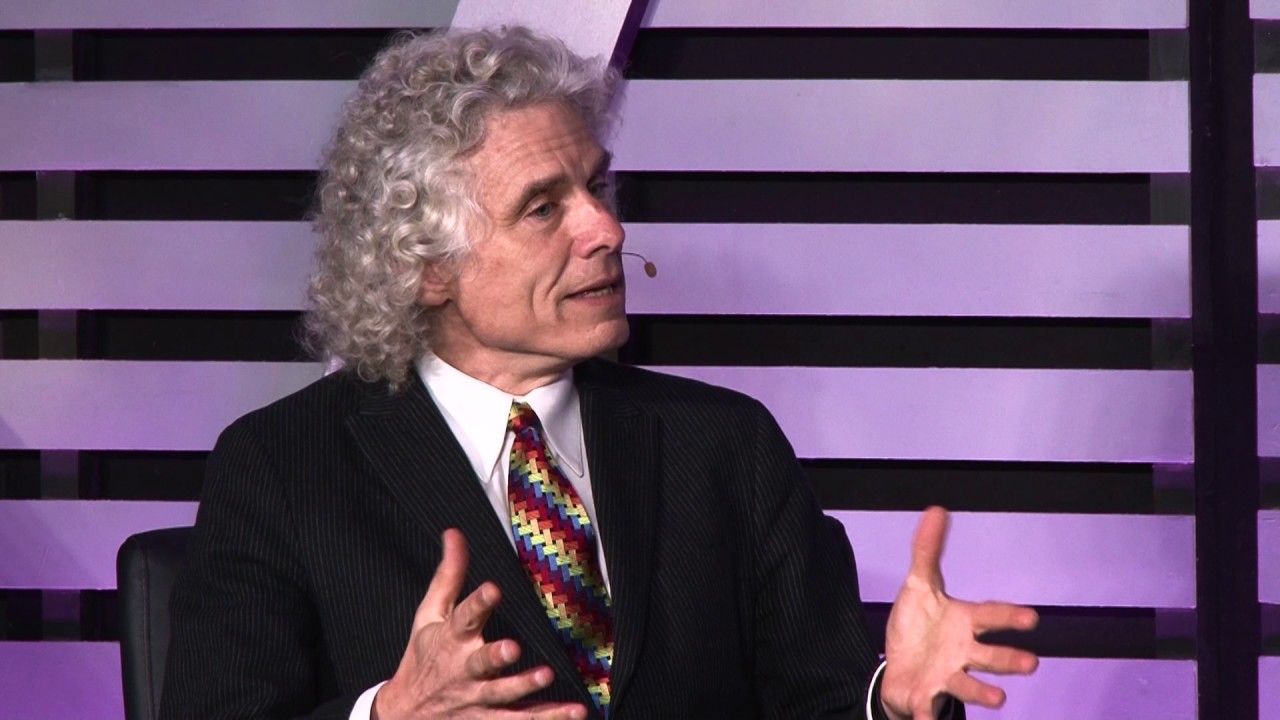Closer To Truth
Why do we have inner awareness? Why does it ‘feel like something’ inside to see, hear, taste, think? It’s called ‘consciousness’ and it seems mysterious—but can science explain consciousness? We talk to experts at the 20th biennial conference, “Toward a Science of Consciousness.” Featuring interviews with Stuart Hameroff, David Chalmers, Daniel Dennett, Deepak Chopra, Susan Blackmore, and Rebecca Newberger Goldstein.
Season 14, Episode 9 – #CloserToTruth
▶Register for free at CTT.com for subscriber-only exclusives: http://bit.ly/2GXmFsP
Closer To Truth host Robert Lawrence Kuhn takes viewers on an intriguing global journey into cutting-edge labs, magnificent libraries, hidden gardens, and revered sanctuaries in order to discover state-of-the-art ideas and make them real and relevant.
▶Free access to Closer to Truth’s library of 5,000 videos: http://bit.ly/376lkKN
Closer to Truth presents the world’s greatest thinkers exploring humanity’s deepest questions. Discover fundamental issues of existence. Engage new and diverse ways of thinking. Appreciate intense debates. Share your own opinions. Seek your own answers.
#Science #Consciousness
Source




What's missing from this picture becomes a whole lot more interesting, once you realize modern psychology can't even explain humor, much less, consciousness, while the US government has admitted to classifying a few jokes as, "Vital to the National Defense" and the Chinese government forbade the use of time travel as a plot device in their mass media. Max Planck was wise to develop a sense of humor, but wisdom in science today is an oxymoron.
perhaps dan and depok are actually saying the same thing…
When I think of consciousness, I think of individuality and individual consciousness within the framework of humanity and how that’s so fascinating. Question of emergence of consciousness is indeed a very interesting hard problem to investigate for sure.
Wholly physical or wholly mental? Holy physical AND holy mental!:)
Blackmore: "…idealism cannot explain chairrs and stuff…." Read Kastrup, please, for a parsimonious and plausible view on idealism without any gaps.
Love this series. My question is that if we don’t have a clue about the nature of the perceiver or experiencer of reality , i.e. consciousness, how can we be confident about anything we believe we know about that reality?
Hi Robert. Love your programs. I was wondering if you could do two segments. One on quantum computers and one on the green energy of the future. It's more for the kids to fulfill their hopes. You've given us a great foundation through your shows. Thanks
I believe that our souls are holographically projected onto our bodies, centred on the pineal gland.
Most physicists now agree that ALL fundamental matter is a projected hologram, given mass by the Higgs boson field.
So, are our bodies and souls holograms?
Scientists refuse to discuss this topic citing that they think it's "metaphysics not physics" but the truth is they don't want to jeopardise their careers by talking about such things. They're obviously worried that it might discredit the universities where they lecture or the companies financing their research.
Personally speaking, I think our bodies ARE holograms alright but not projected holograms, evolved holograms. Our bodies evolved in this holographic environment and therefore must obey the rules of that environment..
We're a 2 in 1 job. Our souls are holographically PROJECTED onto our bodies which are EVOLVED holograms.. imo.. and it just appears to be the logical conclusion..
So where are our souls projected from?
Nearby!
Even though we appear to be 3D creatures living on a 3D planet in a reality where all matter appears to be 3D, space itself is at least 9D, according to String theory.. that's outer space and the space we move around in here on "planet Earth". So we are unable to see at least two thirds of our reality because our senses are "tuned" to 3D, not 9D. So, the machinery that projects our souls onto our bodies is probably right underneath us and overhead us, but we just can't see, feel or sense it because it has dimensions that are made from the 6 dimensions that are "hidden" from us and these dimensions are "other" to our own 3 dimensions. .
Who is running this machinery?
We are (our metaphysical forms that is). We just don't know this yet because our reality is so unbelievably "young".
So what does all this mean ultimately?
What all this means is that there is a distinct probability that WE ARE ALL LIVING IN A GIANT HOLODECK. We are NOT living on an actual planet. It only appears as though we are. This would also explain why matter goes from being a wave to a particle only when observed by a consciousness. Mankind is the "star of the show" in THIS holodeck. Why waste computing power "rendering" entire other galaxies.
Btw, a Holodeck scenario is statistically way more likely than an organic happenstance scenario because of Fine Tuning.. How arrogant would it be to believe that human beings are the first higher intelligence, considering the oceans of time that must have already passed before our "Big bang"..
Ah the truth of our existance may just be a simulation,
We don't define consciousness. Consciousness defines us. Consciousness is God.
To be able to define something, we need to be able to observe it.
But, the thing that observes is consciousness and itself is unobservable.
It just IS. Like when Jesus said "I am that I am"
I liked the face morphing FX
Consciousness is an accident (Inevitable outcome of Multiverse) that happened in this Universe to understand itself.
14:40 Dennett: "–…that don't consider consciousness to be the ultimate distinction in the whole universe, which i think is a bit of anthropocentric hubris." Looking at the vastness of the universe, 200 billion galaxies with about 100 billion stars each, this is the most convincing argument against a universal consciousness that exists because a few tiny humans somewhere on a small planet think they are something special.
By the way, "Featuring interviews with Stuart Hameroff, David Chalmers, Daniel Dennett,…" Ooops, where is John Searle?
It's just a greater degree of awareness, animals have it to a less degree.
Every time Dan Dennet is in a yt video a bunch of people come criticizing him for his idea that consciousness (C. in the following) is an illusion. Some of those even admit they didn't read his book (C. explained). Now, it would clearly be a waste of time trying to convince them otherwise, but to the rest of you: when he says that C. is an illusion (better: a bag of tricks) he certainly doesn't mean that it doesn't exists, just that it is NOT what most of us (and most other philosophers) think it is. Maybe read the book or look up on youtube one of his lecture on the subject. Bye
❤️♥️♥️❤️
This guy does a lot of religious videos where he throws softball questions at religious people – never asks them any hard questions. Like why does God condemn billions of people to Hell over their beliefs? Is that not what ISIS, Hitler did? Why is God acting like a tin-pot Dictator, rewarding the loyal and abusing the rest?
What is there to DO in Heaven? Is Heaven one Giant Retirement Home? Billions of old people floating about staring at each other?
Billions of people spending a useless existence in self-gratification
Is this God's Grand Plan? How does that make any sense?
Not once does he ask such questions
No one has yet defined consciousness, and you can not explain something you cannot define.
And despite over 5 years of asking for such a definition on the consciousness forum, I have seen all newcomers get rebuffed and ridiculed, for even asking such a simple question.
Someone once had the temerity to suggest it is both fundamental and that maybe all living things have it. Well that went down like a lead balloon. As a newcomer I thought the suggestion was worth discussing and had value …………………… but no.
There are at least 3 people who have suggested that the brain is a mind/body co-ordinator, supporting the operating system of the body, and that the Mind may actually reside somewhere else. For example in dark matter. That one too went the way of new thinking.
All the old names have a stranglehold on this area, you would think that after 20 plus years of getting nowhere they would have the humility to at least accept that alternative approaches may be needed.
And most are atheists – no spiritual experience, no revelations, academic letters after their name in plenty but all trying to explain an area of which they have had no experience whatsoever.
Whenever anyone who has had such experiences tries to explain, or add information or provide parables or analogies they get the – 'go away and don't bother us' brush off – none of the people interviewed here even try to accept new information. Their minds are closed.
There is practically no science involved in this area – quite possibly there never was.
And the only people who still seem to be part of the discussions are american.
What is perhaps even more extraordinary is that even americans with a different view are excluded – Dr Donald Hoffman for example.
A complete waste of time.
The problem with consciousness is that it is subjective by definition and therefore cannot be given an objective definition. Everyone in this video was defending their own personal definition of the word.
Robert Lawrence Kuhn, we thank you another truly excellent video and now … here is the truth.
If we assume that the Discrete Set {0,1} and the Continuous Open Interval (0,1) are Equivalent (by axiom), then we can immediately deduce that "A hard deterministic universe and a hard probabilistic universe are therefore Equivalent. And it is profoundly ambiguous whether the universe is one, or the other. Hence, a duality, and it is fundamentally BOTH simultaneously".
Ok once you understand that, then it is a very small step to understand that if that axiom is physically valid in nature, then we can ask whether probabilistic potentials are tangibly existent artifacts of physical nature, or not.
The answer is that they must be, and also cannot be. That these two paradigms are simultaneously valid, due to Equivalence and profound ambiguity.
You may validly assume that probabilistic potentials do not exist, and you'd be correct. But you would also be correct to say that under a different set of assumptions then yes they are indeed tangible.
We may regard the mind as being a hard deterministic contraption which lives in a hard deterministic universe. Under that assumption we are genuine automatons and therefore the mind is just a bunch of neurosynaptic fireworks … the mind is an illusion. And there is no free will in a hard deterministic universe.
On the otheer hand, we may (validly) regard the universe as being genuinely probabilistic. In this case, probabilistic potentials are genuinely tangibly real things, and clearly the mind can be thought of as a kind of computational machine which has these potentials incorporated into the machinery. Our mind is a genuine thing, comprised of vast collections of potentials which are all interacting with their own dynamics and they are tangibly real. Free will is genuinely, tangibly real.
BOTH of these paradigms are simultaneously valid, both are simultaneously correct, due to profound ambiguity which is the result of a much more fundamental Equivalence (our Axiom).
And if you understand this, then you will have ARRIVED at Truth (which itself also has dualistic topology btw). Thank you, and good luck.
9:35 any sentence that contrasts one view with Deepak Chopra’s view should end with, “and obviously Chopra is wrong.”
Deepak Chopra is the Trump of philosophy.
the brain receives consciousness, it does not originate it.
Your sound production really needs looking at. The past few of your videos have a jarring volume jump between the interviews and the voice over (especially noticeable since you've moved to a 'cinematic' visual look).
BTW, whatever consciousness is it must be part of the physical world and be causally connected to it otherwise how could we talk about it?
16:33–16:38 When Deepak talks about fundamental consciousness, Robert is looking like "Yeah right"
Hugs, no masks, flying, what planet is this?
The All.
Debunking the idea that consciousness is a phenomenon of the brain and putting an end to the theories of neuroscience simply requires showing that something survives the body/brain. The work of Jim Tucker at the University of Virginia has shown that!
https://med.virginia.edu/perceptual-studies/our-research/children-who-report-memories-of-previous-lives/
End of neuroscience story!
Darvin is true if this carona virus wins over humans. .
My hair has consciousness. .
Can U explain softeare just by looking at the hardware in a computer. .
TU – CSON
Consciousness is a NEUROLOGICAL phenomenon! Nothing spooky! Do biology, it's science not woo woo seeking rubbish!
Art is a sensitive tool. In films like "AI" or "Blade Runner" we see androids who want to turn into living people. Carl Jung said that hundreds of years of rationalism have ripped the European mentality from its instincts. Which is the primordial basis of human nature. This problem manifests itself in an extreme form when people think they are meat robots, doesn't it?
Only a polymath has a chance to put consciousness into context. Remembering the answer isn't good enough. It has to be realized. That isn't possible without developing a system for defining the numbers and the scales of reality. Conventional counting is limited but a system for recognizing billions of billions of billionths of billionths is required as there are a billion billion synaptic events every second to create our awareness. To understand the evolution of consciousness means recognizing our relationship to ancestors. 2000 years is 80 generations and our relationship to them is a million billion billion. Nano, molecule, cell, population, species, biosphere. All numbers that can't be counted directly, but they can be perceived if they are turned into cubes rather than lines. A line of 36 light days, made of millimeter cubes has a volume of a cube with sides 1000km long. A billion billion billion
Consciousness is the simulation. Simulation theory posits that we are in a universe that is a simulation. What if however, the simulation is the concious objective experience. Our brains have simulate our reality, though I could also say that reality is reaction to experience as it is subject to my condition as it pertains to my conditioned response.
Neuroscience is the real route to understanding consciousness, everything else is a liberal waste of time…. and brain cells…. I'd kick Chalmers and Deepak out, they're pseudoscientists.